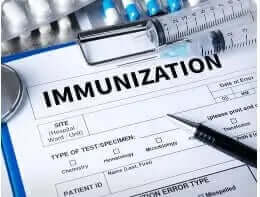Resveratrol: Revolutionary Breakthrough in Breast Cancer Prevention and Treatment
Resveratrol has emerged as one of the most promising natural compounds in the fight against breast cancer since scientists first discovered its powerful anti-cancer properties in 1997. This remarkable polyphenol, found naturally in red grapes, berries, and peanuts, offers hope to millions of women worldwide facing the second most commonly diagnosed cancer, which accounts for 28% of all cancer cases in women.
Understanding Resveratrol's Cancer-Fighting Power
The journey of resveratrol from a simple plant compound to a potential cancer treatment represents one of modern medicine's most exciting developments. When researchers first identified its ability to combat cancer cells, they opened doors to new possibilities for safer, more effective treatments that work with your body's natural defense mechanisms.
What makes resveratrol particularly fascinating is its multi-targeted approach to fighting cancer. Unlike conventional treatments that often focus on a single pathway, this natural compound influences multiple cellular processes simultaneously, creating a comprehensive defense strategy against cancer development and progression.
Groundbreaking Research on Resveratrol and Breast Cancer
Recent scientific breakthroughs have shed new light on how resveratrol specifically targets breast cancer cells. A landmark study published in Cancer Letters (Volume 301, February 2011, pages 168-176) compared the effects of resveratrol with rapamycin, a well-established immunosuppressant drug commonly used in organ transplant patients.
The PI3K/AKT Pathway Discovery
This comparative research revealed something extraordinary: resveratrol works by influencing the PI3K/AKT pathway, a crucial cellular signaling route that controls cell growth and survival. For those unfamiliar with these proteins, think of PI3K/AKT as master switches in your cells. These proteins not only regulate telomerase activity (which affects cellular aging) but also play vital roles in promoting cellular health and extending the life of healthy cells.
The implications of this discovery extend far beyond basic science. By understanding exactly how resveratrol inhibits breast cancer cells, researchers can develop more targeted therapies and potentially combine this natural compound with other treatments for enhanced effectiveness.
Resveratrol Derivatives: Expanding Treatment Options
Scientists haven't stopped at studying resveratrol alone. Recent research published in the International Journal of Cancer (January 2011) explored how different forms of resveratrol, including triacetyl-resveratrol and trimethoxy-resveratrol, compare in their cancer-preventive activities.
Comparative Effectiveness of Resveratrol Forms
The results of this comparative study offer valuable insights for anyone interested in resveratrol supplementation:
- Standard resveratrol and triacetyl-resveratrol work through similar cellular signals, suggesting they may be equally effective for breast cancer prevention
- Both forms successfully stopped breast cancer cell growth in laboratory studies
- These compounds effectively shut down gene expression associated with breast cancer development
- Trimethoxy-resveratrol showed different mechanisms, indicating it might serve different therapeutic purposes
How Resveratrol Protects Against Breast Cancer
Understanding the protective mechanisms of resveratrol helps explain why this compound shows such promise in cancer prevention and treatment. Here are the key ways resveratrol fights breast cancer:
1. Cell Cycle Arrest
Resveratrol can stop cancer cells from dividing uncontrollably by interrupting their reproduction cycle. This gives your body's natural defense systems time to identify and eliminate these harmful cells.
2. Apoptosis Induction
One of cancer's hallmarks is its ability to avoid programmed cell death. Resveratrol reactivates this natural process in cancer cells, causing them to self-destruct while leaving healthy cells unharmed.
3. Anti-Inflammatory Effects
Chronic inflammation creates an environment where cancer can thrive. Resveratrol's powerful anti-inflammatory properties help create conditions unfavorable for cancer development and growth.
4. Antioxidant Protection
By neutralizing harmful free radicals, resveratrol protects cellular DNA from damage that could lead to cancerous mutations.
Practical Applications: Using Resveratrol for Breast Cancer Prevention
While research continues to unveil the full potential of resveratrol, many people are already incorporating this compound into their wellness routines. Here's what you need to know about practical applications:
Dietary Sources of Resveratrol
You can naturally increase your resveratrol intake through these foods:
- Red grapes (especially the skin)
- Red wine (in moderation)
- Blueberries and cranberries
- Peanuts and pistachios
- Dark chocolate (with high cacao content)
Supplementation Considerations
For therapeutic levels of resveratrol, dietary sources alone may not suffice. High-quality supplements can provide concentrated doses similar to those used in research studies. When choosing a resveratrol supplement, consider:
- Bioavailability-enhanced formulations
- Third-party tested products
- Standardized extracts with consistent potency
- Combination formulas that include complementary antioxidants
The Future of Resveratrol in Cancer Treatment
The discoveries about resveratrol's effects on the PI3K/AKT pathway open exciting possibilities for future cancer treatments. Researchers are now exploring:
Combination Therapies
Scientists are investigating how resveratrol might enhance the effectiveness of conventional cancer treatments while potentially reducing their side effects. Early results suggest that combining resveratrol with certain chemotherapy drugs could improve outcomes while protecting healthy cells.
Personalized Treatment Approaches
As we better understand how different forms of resveratrol work, doctors may be able to tailor treatments to individual patients based on their specific cancer characteristics and genetic profiles.
Prevention Protocols
The preventive potential of resveratrol offers hope for reducing breast cancer incidence, especially in high-risk populations. Ongoing studies are determining optimal dosages and delivery methods for maximum protective benefits.
Success Stories and Real-World Applications
While individual results vary, many women have incorporated resveratrol into their health routines with encouraging outcomes. From supporting overall breast health to complementing conventional treatments, this natural compound continues to demonstrate its value in comprehensive cancer care approaches.
Healthcare providers increasingly recognize resveratrol's potential as part of integrative oncology programs. These programs combine the best of conventional medicine with evidence-based natural therapies, offering patients more options and potentially better outcomes.
Taking Action: Your Next Steps with Resveratrol
If you're interested in harnessing the protective power of resveratrol, consider these actionable steps:
- Consult with healthcare providers about incorporating resveratrol into your wellness routine, especially if you have a family history of breast cancer
- Start with dietary sources by increasing your intake of resveratrol-rich foods
- Research quality supplements if you decide supplementation is right for you
- Stay informed about ongoing research and new discoveries in the field
- Consider comprehensive testing to understand your individual risk factors and how resveratrol might benefit you
Conclusion: A Natural Ally in the Fight Against Breast Cancer
The growing body of research on resveratrol offers genuine hope in the battle against breast cancer. From its discovery as an anti-cancer compound in 1997 to recent breakthroughs understanding its molecular mechanisms, this natural substance continues to surprise and inspire researchers worldwide.
As science advances our understanding of how resveratrol works at the cellular level, particularly through the PI3K/AKT pathway, we move closer to more effective, less toxic cancer treatments. Whether used for prevention or as part of a comprehensive treatment approach, resveratrol represents a powerful tool in promoting breast health and fighting cancer.
The future looks bright as researchers continue exploring the full potential of resveratrol and its derivatives. With each new study, we gain valuable insights that bring us closer to conquering one of the most challenging health issues facing women today.
Frequently Asked Questions About Resveratrol and Breast Cancer
What is resveratrol and where does it come from?
Resveratrol is a natural polyphenol compound found primarily in the skin of red grapes, but also in berries, peanuts, and Japanese knotweed. Plants produce resveratrol as a defense mechanism against stress, injury, and fungal infections. This powerful antioxidant gained attention for its potential health benefits, particularly its anti-cancer properties discovered in 1997.
How does resveratrol specifically fight breast cancer cells?
Resveratrol combats breast cancer through multiple mechanisms. Most notably, it influences the PI3K/AKT pathway, which controls cell growth and survival. It stops cancer cells from dividing, triggers programmed cell death in cancer cells, reduces inflammation that promotes cancer growth, and protects DNA from damage through its antioxidant properties. Research shows it can effectively shut down gene expression associated with breast cancer development.
What's the difference between resveratrol and its derivatives like triacetyl-resveratrol?
While standard resveratrol and triacetyl-resveratrol work through similar cellular signals and show comparable effectiveness in preventing breast cancer, they differ in bioavailability and absorption. Triacetyl-resveratrol is a modified form designed to improve absorption in the body. Trimethoxy-resveratrol, another derivative, works through different mechanisms and may serve different therapeutic purposes. Research suggests standard resveratrol and triacetyl-resveratrol are better suited for breast cancer prevention.
How much resveratrol should I take for breast cancer prevention?
Optimal dosing for resveratrol varies based on individual factors and specific health goals. While dietary sources provide beneficial amounts, therapeutic doses used in research studies typically range from 150-500mg daily. However, it's crucial to consult with healthcare providers before starting any supplement regimen, especially if you have existing health conditions or are taking medications. They can help determine the appropriate dose based on your individual risk factors and health status.
Can resveratrol be used alongside conventional breast cancer treatments?
Research suggests resveratrol may enhance the effectiveness of certain conventional cancer treatments while potentially reducing their side effects. Some studies indicate it can make cancer cells more sensitive to chemotherapy and radiation. However, it's absolutely essential to discuss any supplement use with your oncology team, as timing and interactions with specific treatments must be carefully considered. Many integrative oncology programs now include resveratrol as part of comprehensive treatment plans.
What are the best food sources of resveratrol?
The richest dietary sources of resveratrol include red grapes (especially the skin), red wine (in moderation), blueberries, cranberries, peanuts, pistachios, and dark chocolate with high cacao content. While these foods provide beneficial amounts, achieving therapeutic levels similar to those used in cancer research studies typically requires supplementation. Incorporating these foods into your diet provides not only resveratrol but also other beneficial compounds that work synergistically.
Are there any side effects or risks associated with resveratrol supplementation?
Resveratrol is generally well-tolerated, but some people may experience mild digestive issues at higher doses. It can interact with blood-thinning medications and may affect how the liver processes certain drugs. Pregnant or nursing women should avoid high-dose supplementation. Always choose high-quality, third-party tested supplements and start with lower doses to assess tolerance. Consulting with healthcare providers ensures safe and effective use.
How long does it take to see benefits from resveratrol supplementation?
The timeline for experiencing benefits from resveratrol varies depending on individual factors and health goals. Some antioxidant and anti-inflammatory effects may be noticed within weeks, while cancer-preventive benefits develop over months to years of consistent use. Research studies typically evaluate outcomes after several months of supplementation. Patience and consistency are key, as resveratrol works by supporting long-term cellular health rather than providing immediate dramatic changes.
What makes resveratrol different from other cancer-fighting supplements?
Resveratrol stands out due to its multi-targeted approach and extensive research backing. Unlike supplements that work through single mechanisms, resveratrol influences multiple pathways including PI3K/AKT signaling, inflammation, oxidative stress, and gene expression. Its ability to both prevent cancer development and enhance treatment effectiveness makes it unique. Additionally, its natural origin and generally excellent safety profile make it an attractive option for long-term use in cancer prevention strategies.
Should everyone take resveratrol for breast cancer prevention?
While resveratrol shows significant promise for breast cancer prevention, supplementation decisions should be individualized. Factors to consider include family history, genetic risk factors, current health status, and other medications or supplements being taken. Those at higher risk for breast cancer may benefit more from preventive supplementation. A comprehensive approach including healthy diet, regular exercise, stress management, and appropriate screening remains essential. Consulting with healthcare providers helps determine if resveratrol supplementation aligns with your personal health goals and risk profile.
References:
- https://www.tandfonline.com/doi/abs/10.3109/19390211.2011.650842
- https://www.sciencedirect.com/science/article/pii/S0955286305000355
- https://onlinelibrary.wiley.com/doi/abs/10.1002/ijc.25930







